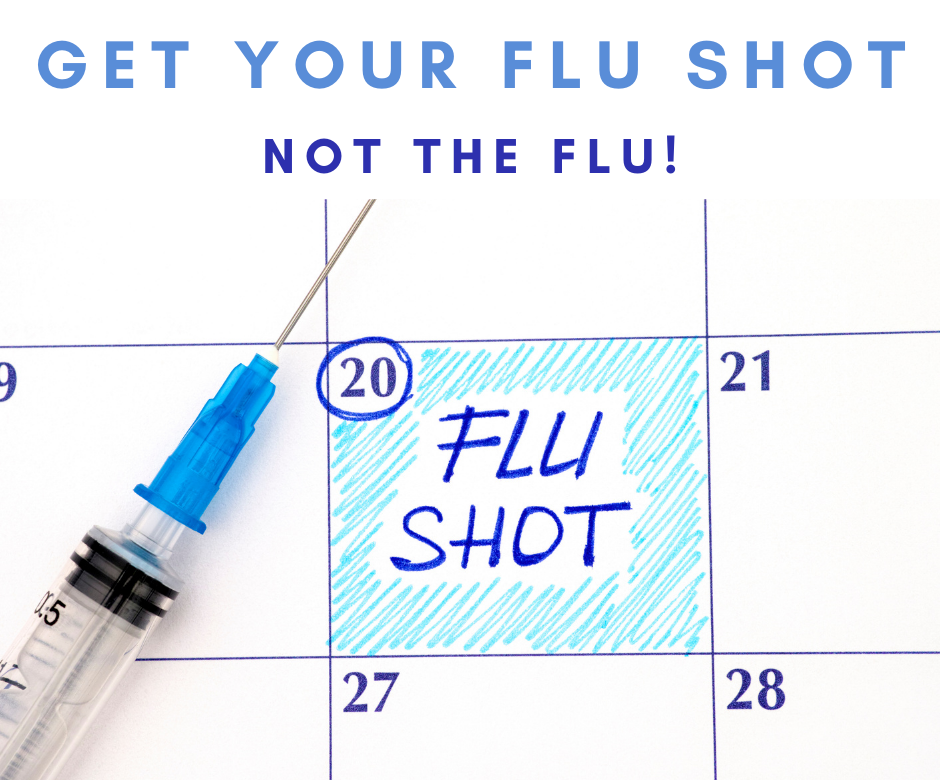
It’s Not Too Late to Protect Yourself Against the Flu
Annual vaccination is the best way to protect yourself against the influenza virus.
The holiday season is upon us, which means you will likely be spending more time with friends and loved ones over the next several weeks. With gatherings comes more opportunities for spreading the flu and other respiratory viruses, such as COVID-19.
National Influenza Vaccination Week is Dec. 5 through Dec. 11, providing everyone with an important reminder to get your annual flu vaccination if you have not yet already done so.
According to the Centers for Disease Control and Prevention (CDC), flu activity during the 2020-2021 season was very low due to pandemic-related face coverings and social distancing measures. With this year’s holiday season looking much more normal compared to last year, the CDC anticipates this year’s flu season to pan out much differently.
So how can you protect yourself and loved ones during this year’s holiday gatherings? The CDC recommends that everyone six months and older get vaccinated.
While October is the ideal month for flu shots, allowing time for your body to build immunity before the height of the flu season, what is most important is that you eventually get vaccinated.
It is estimated that half of adults, ages 18 to 64, with at least one chronic health condition received a flu vaccine last season. This means that many individuals who are most vulnerable to getting very sick with the flu are not getting the protection they need.
Flu vaccines are needed each year because flu viruses are constantly changing. It is because of this that vaccinations are reviewed each year and updated as appropriate to better match flu viruses that are expected to spread in the U.S. this season.
This year, flu vaccines in the U.S. are quadrivalent (four-component), meaning they are designed to protect against the four flu viruses that research indicates are most likely to spread.
According to health officials, it is possible to become sick with both the flu and COVID-19 at the same time. Both viruses are contagious respiratory illnesses, but different types of viruses cause them.
COVID-19 is caused by infection with a coronavirus, and seasonal flu is caused by infection with many influenza viruses that spread annually. It is possible to have flu and other respiratory illnesses like COVID-19 at the same time. Some of the symptoms of flu and COVID-19 are similar, making it hard to tell the difference between them based on symptoms alone.
Unlike the flu, COVID-19 can cause loss of sense of taste or smell. However, other symptoms of the two illnesses can be similar. Symptoms can include fever, chills, coughing, and muscle and body aches. Diagnostic testing is needed to determine which type of virus you have.
It is still possible for someone who has received a flu shot to contract the virus, although symptoms in such cases are typically less severe than they are for someone who has not been vaccinated.
So how can you protect yourself this year? Wearing face masks and physical distancing can help protect you and others from respiratory viruses like flu and COVID-19. The best way to reduce your risk of flu illness and its potentially serious complications is to get a flu vaccine each year for everyone six months and older.
If you have not yet received a COVID-19 vaccine, or a COVID-19 booster shot, the CDC recommends you do so as soon as possible. Both flu and COVID-19 vaccines can be safely administered at the same time.,
For more information about vaccines and scheduling an appointment to get vaccinated, please call the Faith Community Rural Health Clinic in Jacksboro (940-567-5528), Bowie (940-872-1121), Alvord (940-427-2858), and Graham (940-282-2512).





